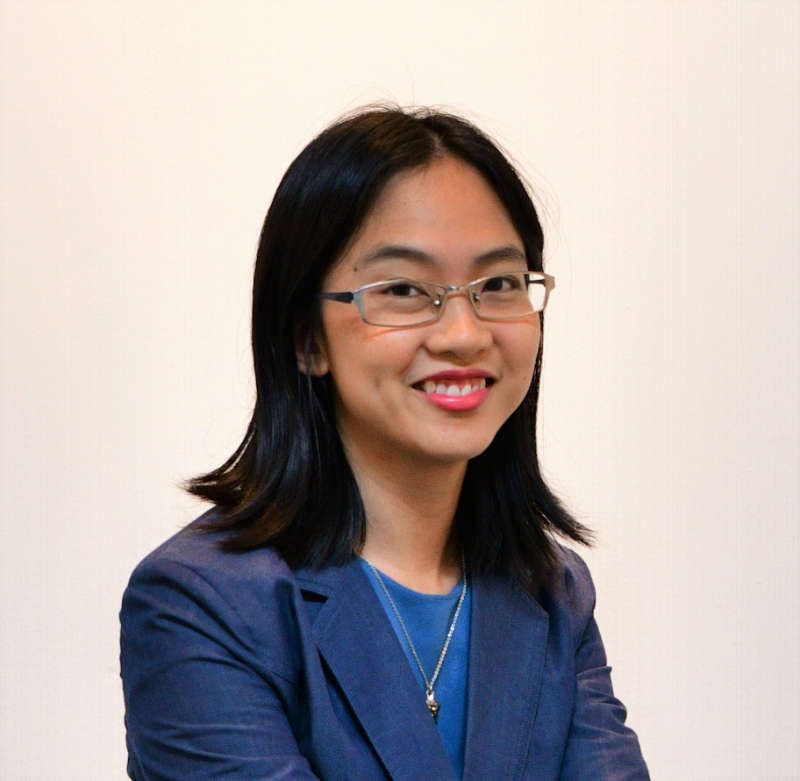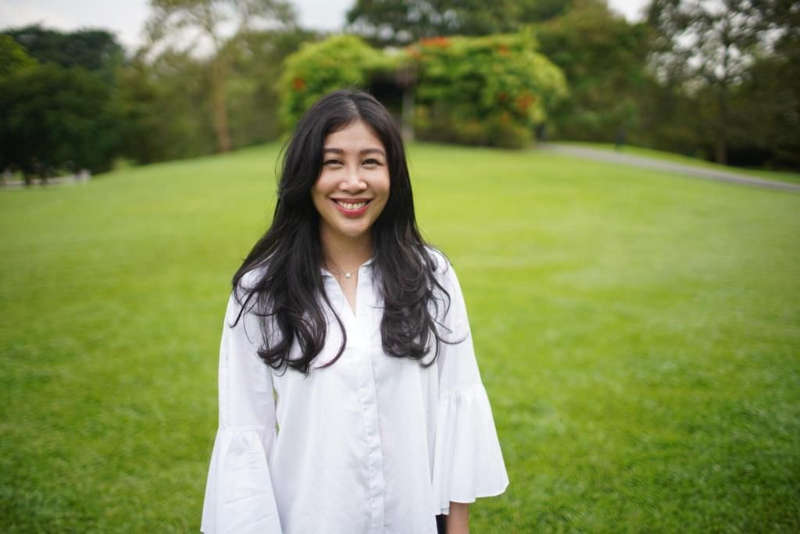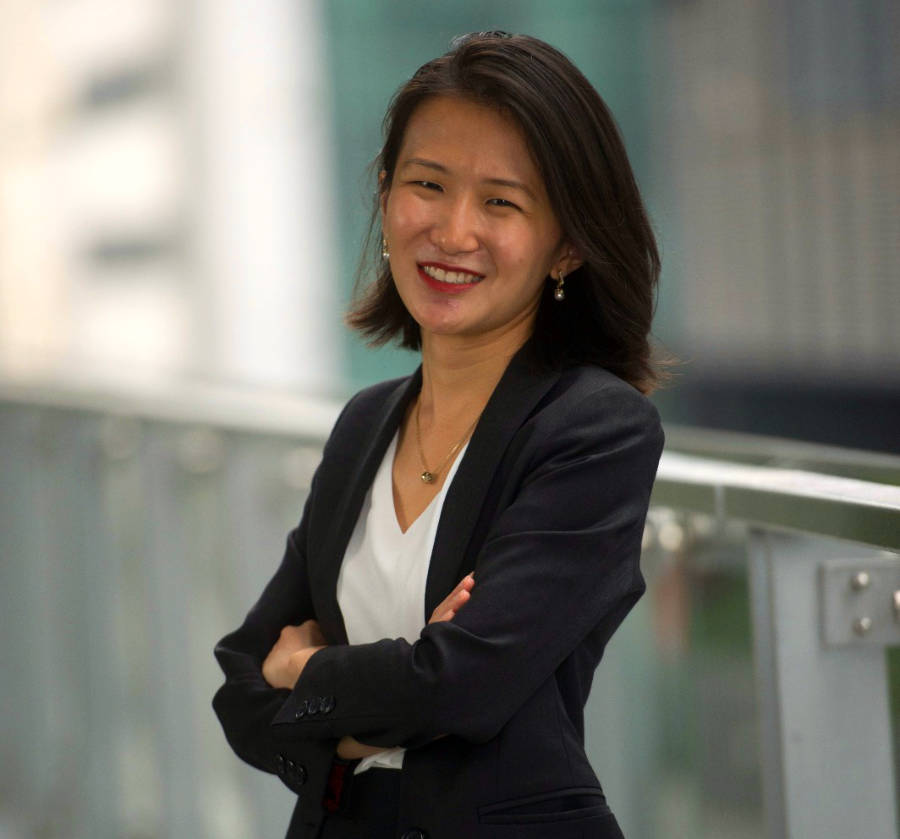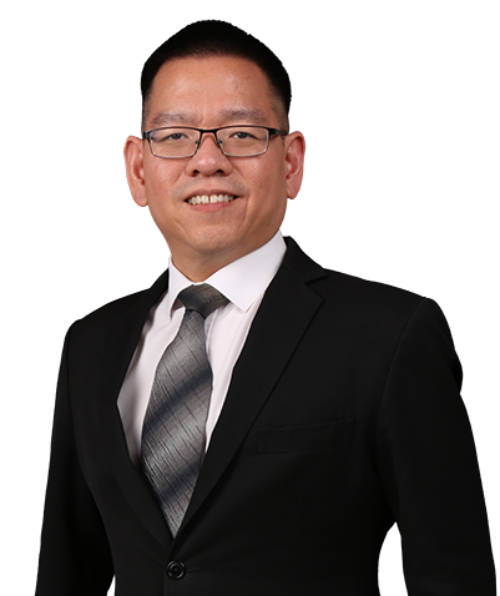
Many Roads to Rome
The trajectory of many modern day careers has changed immensely. Gone are the days of our forefathers who often stayed in one career and indeed, in the same job and with the same employer their whole working lives. Today’s millennials and Gen Z are carving out different career paths for themselves within the profession of law. There are now many options and alternatives that will enable you to remain in the profession albeit in different roles, thanks to how the profession as a whole has evolved and opened up many more opportunities. These opportunities will allow you to continue to utilize your hard won and hard earned legal skills, even if not in the traditional mould of working your way up in a law firm.
The Law Gazette meets seven legal professionals, from within and outside of legal practice, all of whom have trodden very different paths in their legal careers. Each of them have shared openly about their early experiences and how it led them to find fulfilment in what they are doing today. Just as the old adage says you have to kiss many frogs before you meet the partner of your dreams, so too in your career, you may have to try out many different things before knowing which job or career path is “the one”. Remember this: you may encounter several detours, and starts and stops, but eventually you will find yourself in Rome.
Eunice Chua
Chief Executive Officer
FIDReC

Eunice Chua
1. Please tell us a little about yourself and what you are currently doing.
I am the CEO of the Financial Industry Disputes Resolution Centre Ltd (FIDReC), where I am part of a team that helps to resolve disputes between consumers and financial institutions (including banks, life insurers, general insurers, capital markets services licensees, and financial advisors) through mediation and adjudication. We also contribute to public education on common issues we see at FIDReC and frequently engage with the Monetary Authority of Singapore to share statistics and insights.
I work closely with the FIDReC Board of Directors to ensure that FIDReC carries out our mission of providing an affordable alternative dispute resolution scheme that is independent and impartial, so as to encourage and assist in the resolution of disputes between consumers and financial institutions in an amicable and fair manner. This includes supporting and developing my team through training and coaching, engaging with partner mediators and adjudicators, being a good steward of FIDReC’s resources, and delivering projects to enhance FIDReC’s effectiveness like our recent digital transformation project.
2. Tell us more about the journey that led you to your current position, and the factors that influenced your decision to pursue an alternative career path.
Many parts of my journey were not planned but, looking back, I see how each experience built on what I had done before and led me to where I am today.
After graduating, I started pupillage at Allen & Gledhill LLP before the firm kindly released me to join the Supreme Court as a Justices’ Law Clerk. I went on to serve as an Assistant Registrar and at various times held concurrent appointments as a Magistrate and Assistant Director of the Singapore Mediation Centre. The seven years I spent with the Supreme Court sparked my interest in mediation, honed my legal skills, and gave me my first taste of leadership.
It was the trust and confidence of my bosses that gave me courage to apply for the position of CEO of the then newly conceived Singapore International Mediation Centre (SIMC). I was appointed Deputy CEO instead and had a wonderful opportunity to start a mediation institution from scratch, plug into the international dispute resolution community, and represent SIMC on the global stage.
I then thought I would spend the rest of my career as an academic at the Singapore Management University School of Law. I had a joyous three years there researching, writing, and teaching. This role gave me the chance to reflect on the questions I had in the areas of evidence, procedure, and dispute resolution, and think of ways to address them. Then the FIDReC opportunity came along in an unexpected way, and, with my family’s support, I chose to seize it.
3. Could you share more about what you enjoy and value about your current field of work?
I enjoy and value, first, the purpose of the work, which is to provide access to justice for individuals who have disputes with their financial institutions that they cannot resolve on their own. The claim values may be small compared to what I dealt with previously in the Supreme Court, but they mean a lot to the people who come to FIDReC for help. In giving our attention and our best to these claims, we contribute to the stability and health of Singapore’s financial system and court caseload.
Second, the people I work with. Starting with the Board of Directors to my team members at FIDReC, I have felt supported, respected, and valued. Most of the people I work with are not lawyers, but their ability to connect with people, rich experiences and specialist domain knowledge have enriched me and taught me important lessons.
Finally, the challenge the work brings. Many novel issues are dealt with at FIDReC that will likely not make their way to the courts. I can positively contribute to policymaking and shape industry practice through FIDReC’s handling of such novel issues. Being in the field of dispute resolution outside the courts means that FIDReC does not have state-backed power, but must use our soft power, empathy, and communication skills to promote productive conversations.
4. Please share some tips, advice or dos and don’ts for young law graduates.
- Don’t neglect soft skills, do hone them along with your hard skills.
- Don’t burn bridges, do build relationships wherever you go.
- Don’t stop learning, do be curious and be willing to ask questions.
- Don’t let work define and devour you, do keep your family and friends close and continue with hobbies you enjoy.
- Don’t think you have it all figured out, do keep an open mind to opportunities that may come your way.
Team from INTELLLEX – Sophie, Ryan and Naomi (Legal Knowledge Engineers)

(From left) Sophie, Ryan, Naomi
1. Please tell us a little about yourself and what you are currently doing.
The three of us are part of INTELLLEX’s team of Legal Knowledge Engineers (LKEs). We work closely with our software engineers to build knowledge systems at the heart of INTELLLEX’s products – such as FinReg.sg and SOURCE+ – amongst other roles. We have a pretty diverse job scope which allows us to wear various hats from content curation to product and business development.
As the most tech-savvy of the three of us, Sophie leads the more nuanced, cross-disciplinary aspects of all of our projects. Ryan is our content lead who manages the content of our latest project, FinReg.sg, and he is also our liaison to our various professional partners. I am the project lead for our legal knowledge search engine, SOURCE+, a refreshed version of INTELLLEX’s very first product.
2. Tell us more about the journey that led you to your current position, and the factors that influenced your decision to pursue an alternative career path.
Naomi: I pursued law as a second degree and was called to the Bar in 2019. The circuit breaker period threw whatever routine I had out of the window and, even though there were parts of practice I enjoyed and my former firm was like family to me, I found myself confronting some existential questions about my future in the legal industry. INTELLLEX offered me the chance to explore a different career while still making use of my legal training – a combination which was hard to resist.
Sophie: I decided I wasn’t ready and didn’t want to be a lawyer at the time I graduated. INTELLLEX was hiring at that time and since I had interned at INTELLLEX before, I figured I would apply. Now I’m a legal knowledge engineer.
Ryan: I was set on qualifying in England before I came across the INTELLLEX LKE internship. I was always interested in legal tech anyway, and thought the experience would be great for training contract applications in the future. My internship was converted into a full time LKE role as I started becoming heavily involved in major projects. Fast forward one year later and I’ve decided that I enjoy the work and culture, so much so that I’ve decided to put qualifying on an indefinite hold for now.
3. Could you share more about what you enjoy and value about your current field of work?
Ryan: What led me to stay in INTELLLEX is the sense of ownership I have with the work I do. We are a small and lean team where our efforts literally can’t go unnoticed. No red tape, no elaborate hierarchy; just a company that gets things done. In every decision made, task executed or meeting sat through, the outcome was always apparent.
Naomi: I really enjoy having the opportunity to work with people from different disciplines and who have been very patient and generous with sharing their experience and know-how with me. I feel like I’m developing a broader perspective on problem solving, which was the aspect of law which drew me in to begin with.
Sophie: I enjoy thinking up new features grounded in the company’s existing technology capabilities to address users’ needs. To me, being in tech is about developing solutions to address existing problems that our users face in their roles as professionals. Being in a startup means there is freedom to upend what already exists, as long as there is proper justification for its necessity and how this is good for the company’s goals.
4. Please share some tips, advice or dos and don’ts for young law graduates?
Ryan: Be brutally honest with what drives and fulfills you. As a law grad, you possess interdisciplinary skills that are highly sought after, and your contribution to the legal industry doesn’t need to be limited to private practice or in-house. Stay open to alternative career paths and constantly upskill yourself, while staying aligned to your drive.
Sophie: Please don’t spend all your time as a student studying law and thinking about the law. There is a world beyond your textbooks, cases and journal articles.
Naomi: Be kind to yourself. You will feel like you’re being pulled in more directions than you have ever been, between serving your clients, your bosses, your colleagues, your loved ones and yourself. The truth is, this pressure comes from expectations you have put on yourself. Remember the safety instructions for oxygen masks on a plane. You can only add value to others if you remain conscious enough to do so.
Tricia Ho
Lecturer
Singapore University of Social Sciences

Tricia Ho
1. Please tell us a little about yourself and what you are currently doing.
I have been professionally involved in family law for the past nine years. The first seven years were spent at Drew & Napier LLC doing family law litigation. They were some of the best years and I remain very grateful for all the kindness that my bosses, teammates and colleagues showed me. My years in practice gave me valuable on-the-ground experience with family clients who are often going through very difficult periods in their lives. A family lawyer in that position is able to appreciate the fears, concerns, and emotional and financial needs that a person goes through when their family unit breaks down. For the last three years, I have been working as a family law lecturer at the Singapore University of Social Sciences (SUSS).
2. Tell us more about the journey that led you to your current position, and the factors that influenced your decision to pursue an alternative career path.
There are pros and cons to any career decision. I would say that trying your hand at private practice is a must! It doesn’t matter how long you stay in practice – it is the experience of being in a law firm and running cases that gives you insight into how clients and other litigation lawyers think. Give it a good shot (whatever that may be for you). The relationships you will gain are also very precious as these are the people who really see you at your worst through working long hours, weekends and sometimes even overnight. Being able to perform under time pressure and resilience are other useful skills that you will pick up in the course of private practice.
While I really enjoy litigation work, it grew more important for me to be able to control my time. The nature of being in practice is that it’s a service-oriented industry where the clients’ preferences and demands often dictate an associate’s working hours. I found that there were other areas of my life I wanted to develop, for example, learning a new language, volunteering, and being part of a church community etc. That was mostly what influenced my eventual decision to pursue an alternative career path in academia.
3. Could you share more about what you enjoy and value about your current field of work?
Being in academia is a completely new experience for me. The work environment is in a school, which is entirely different from the corporate environment I had grown accustomed to. When preparing course materials or preparing for classes, the process is generally quite independent of others and a lecturer’s work schedule is largely driven by pre-fixed semester timetables. This is unlike the nature of litigation work, which is extremely time sensitive and teamwork based.
As for teaching, it has become something that I really enjoy. Given that SUSS’ focus is on grooming family and criminal law practitioners, I find it meaningful that I have an opportunity to educate future family lawyers and guide them in a holistic way. Most of my students are very interested in my subject (which is great!) and strive to make a difference to the community around them.
Publishing articles has proven to be a very challenging task, which I am happy about. When in private practice, there is alot of pressure from the clients to achieve their desired outcomes. That sometimes makes it harder to see the big picture in respect of how the law is developing and whether the position the client wishes to adopt is helping that area of law or otherwise. Having to assess the shape of the law and putting forward ideas on how family law can develop optimally has been a very refreshing process that involves thinking from a different perspective.
4. Please share some tips, advice or dos and don’ts for young law graduates?
You have obtained your law degree, and are now being called to the Bar. Even though it took some time for you to get here, you are actually at the very beginning of your career in law. The legal industry does take a while to get used to, and it is natural that things will seem tough at the beginning.
I know this is easier said than done, but:
- Don’t panic if you feel like you don’t know what you’re doing – calm down and try to clarify things with the relevant person. For those of you who have started your training contracts, I’m sure you can empathise with this.
- Don’t give up even when things seem daunting and you think you’re going to fail. We succeed because of past failures, not in spite of them. Failure helps you grow and become stronger. Don’t be afraid of it, just try again!
- Be open minded and press on because you’ll never know what you’ll find. I somehow ended up in law school after my A Levels and I’ve now found a lifelong career option in law that I’m truly passionate about.
A career in law can be very rewarding so make the best use of your opportunity to join the legal profession!
Leo Zhi Wei
Counsel
Providence Law Asia LLC

Leo Zhi Wei
1. Please tell us a little about yourself and what you are currently doing.
Since I was called to the Bar five years ago, I have been practising as a commercial disputes lawyer. Outside of practice, I lecture Business Law as an adjunct at the Singapore Management University and volunteer with causes relating to community and migrant workers’ legal issues. I value my professional interests in teaching and volunteering as much as my work as a lawyer, for these interests have not only enriched me as a lawyer and a person, but have also enabled me to find continued meaning and fulfilment in what I do.
2. Tell us more about the journey that led you to your current position, and the factors that influenced your decision to pursue an alternative career path.
My journey has not been a particularly linear one. During law school, I thought that being a lawyer was the most natural career choice for any law graduate and that I, too, would pursue the well-travelled path. However, I soon realised that I had limited myself far too early on.
While pursuing my graduate legal studies on the BCL course in the University of Oxford, I was fortunate to be in the company of passionate classmates who were embarking on a myriad of career paths: apart from classmates who intended to quality as solicitors or barristers, a number of them were aspiring legal academics applying to enrol on PhD programmes in their fields of interest, while other public-spirited classmates were going to work in NGOs and international tribunals such as the ICTY and ICC, or to work on legal policy and reform in their respective home countries or the EU. The sheer diversity in their choices compelled me to question my existing decisions. Eventually, I made the difficult decision to forgo a training contract offer I had in order to free up my ability to explore my options fully.
Initially, I was unsure of where to begin and where my end point would be. Based on my academic interests at the time, I looked for opportunities in the field of public interest law. One opportunity led to another, and in the succeeding two years, I had the chance to work on some very interesting projects in institutions such as the International Bar Association, the Bingham Centre for the Rule of Law and the Supreme Court of Israel. My areas of research encompassed topics ranging from judicial review and legal aid reform in the UK, to the rights of indigenous people in the Occupied Palestinian Territories and other pressing human rights issues such as the right to clean water and media freedom in developing countries, amongst many others.
My experiences broadened my horizons considerably and gave me many opportunities to meet people from all over the world. However, I decided, after much reflection, that a career in public interest law was not my calling. Even though I could appreciate the immense value of legal research and policy reform in engendering social change, I craved a more direct and practical connection between the law and problems faced by individuals and corporations in my day-to-day work. This realisation eventually led me to return to Singapore to train as a lawyer.
3. Could you share more about how your pursuit of alternative career options has impacted your practice as a lawyer, if at all?
While the early “detour” I had taken did delay the start of my legal career, the process helped me to gain clarity and certainty on what I was seeking in my professional life. If I had practised law immediately after graduation, I would probably have experienced lingering doubts over my decision and the burning curiosity of the “what-ifs” if I had chosen another path.
Working in the public interest world also left an indelible impact on me in other ways. Significantly, it has played an important role in shaping my interests in legal education and pro bono legal work. My experiences learning about the enduring problems faced by vulnerable communities have helped me to maintain perspective even amidst the demanding and sometimes all-consuming nature of legal practice. I am constantly reminded of the wider contributions I hope to make beyond my day-to-day work as a lawyer, which has motivated me to explore how I could utilise my legal skills to help disadvantaged members of society. It is the same desire to give back to society that inspired me to take up teaching. Practising as a lawyer has given me an invaluable glimpse into the full range of legal problems that commercial players often face. Teaching, on the other hand, gives me the opportunity to share the knowledge I have gained from legal practice with my students, to educate them on their legal rights and hopefully better prepare them to face the commercial world.
4. Please share some tips, advice or dos and don’ts for young law graduates.
Don’t be bound by convention or precedent – be courageous in charting your own unique journey! My best advice will be to keep an open mind, consider what you find fulfilling and what you are genuinely interested in, and expose yourself to different types of legal work early on to gain a holistic perspective of what suits you best.
Arvin Lee
Partner, Arbitrator and Adjudicator
Wee Swee Teow LLP

Arvin Lee
1. Please tell us a little about yourself and what you are currently doing.
I am currently into my fifth year as a partner at Wee Swee Teow (WST), where I started WST’s energy disputes practice, spanning oil and gas on the one end through renewables on the other. This requires me to be an international arbitration lawyer some days and an international litigation lawyer other days. I have brought in clients such as Pertamina of Indonesia and Wintak of Taiwan for oil/gas, and GE and The Blue Circle Group for renewables.
As WST, despite being 110 years old this year, is relatively small, we are very conflict-free, and my business model that has evolved is one where we act for big boys against other big boys. For example, we have acted against two of the global big five commodities trading houses, and now awaiting instructions to act against a third. We acted for a Pertamina subsidiary against a major French bank recently in a USD24M dispute that was heard before the Singapore International Commercial Court.
In terms of my practice model, I have created one where, with clients’ blessings, young juniors at even one or two PQE are given a high level of oral advocacy experience as lead counsel, under my intensive supervision (although I hold off whenever I recognise they are on to something better than what I can conceive of – which does happen). So they have cross-examined key witnesses by themselves, argued against Senior Counsel by themselves, appeared before High Court Judges and Arbitrators with Queen’s Counsel designation by themselves.
2. Tell us more about the journey that led you to your current position, and the factors that influenced your decision to pursue an alternative career path.
I have taken rather extensive detours from my external counsel path. I have approximately six to seven years’ public sector experience, in three roles. Two have been particularly meaningful – as Manager (Law and Policy) at the Dubai International Financial Centre Courts, and as Deputy Head (China) and Counsel at the Singapore International Arbitration Centre.
The first came about because I managed to convince Dr Michael Hwang SC, on a cold call, to take me into his Chambers as an Associate but to second me first to the DIFC Courts (where he was Chief Justice from 2010 till his mandatory judicial retirement in 2018), as I had a few years of legal administration experience as Manager (Strategic Planning) at the Singapore Academy of Law (my third public sector role).
The second came about when the SIAC was looking for someone to take its China business development on a different trajectory and momentum, and I had the necessary skill sets and inclination for that, thanks to my background and my stint with Dr Hwang. You can say the SIAC hired me away from Dr Hwang, and Dr Hwang very graciously let me move on to that. He was so gracious about it that when I moved out of the SIAC back into private practice almost two years after that, Dr Hwang very kindly was the anchor interviewee for an article that Global Arbitration Review published on my move, alongside senior SIAC management of that time.
3. Could you share more about how your pursuit of alternative career options has impacted your practice as a lawyer?
I can think of three aspects.
Firstly, these roles gave me extensive and intensive interactions with senior decision-makers in law firms, and one picks up a sense of judgment and awareness from these interactions, that informed my own decision-making when I was back in private practice, as lead counsel and as business owner. And unlike being in a law firm where you only have a limited number of senior decision-makers to teach you these aspects, in an institution with a more macro ken that gives access to a big number of such decision-makers, you have interactions with a wider range of people to learn from. As lead counsel, these interactions taught me early on how to be strategic, and the counter-intuitive art of being willing to lose little battles along the way in order to win the war. As business owner, these interactions taught me early on the importance of the book (i.e. portfolio of clients) and the bottom line for law firm partners, and I have maintained early priority on clientele building and setting healthy billings and collections targets as a law firm partner, as a result.
Secondly, my stint at SIAC gave me inside knowledge of SIAC’s processes and practice. My stint at the DIFC Courts gave me a keen insight into how international commercial Judges think, and how the practice of international commercial courts evolve. These are very useful for my international arbitration and international litigation practices, when I face situations that are new, my predictive ability is that much more nuanced and sounder.
Thirdly, these institutions have a far wider range of stakeholders than a law firm, often with conflicting demands. So I learnt to balance competing demands of stakeholders, to separate noise from signal, and to understand what makes an institution move forward through its competing expectations and remits. While those skills are not immediately applicable to external counsel work, it does make one more curious about the decision-making that led to the commercial events being disputed in cases, especially those that are on the face inexplicable, and hones a better intuition for what actually went on. It helps shape one’s case theory better, as outlying facts are not disregarded but embraced, which sometimes makes the difference between a winning case and a losing case. Senior and experienced disputes lawyers have these through decades of commercial disputes lawyering, of course – but these early stints help one shorten the learning curve.
4. Please share some tips, advice or dos and don’ts for young law graduates?
To use the words of a former managing partner I worked with, “TLO” or “Think Like Owner”. You are the owner of your own career, think broadly about what is the sort of career you want, map out the skillsets and experience you need to move into these, figure out what institutions to work in to allow you to acquire these, and exercise equanimity whether such moves come with increases or decreases in remuneration. Within a law firm, even if you are an Associate, start thinking like an owner early on. Be realistic about what drives value within the firm, and see how you can play a role in being part of that. Work on acquiring clientele – you are never too junior for that. The time for you to step up and get in paying clients comes before you know it. If you don’t have that ability, then you would be an employee forever – and you can get too expensive for any law firm anywhere to bear, as your seniority (and remuneration expectations) increase while your ability to originate and generate work does not. And wherever you are, look for people around you to lift up, with no expectation. That is what leaders do. And one is never too junior for this – there is always someone else to lift up.





